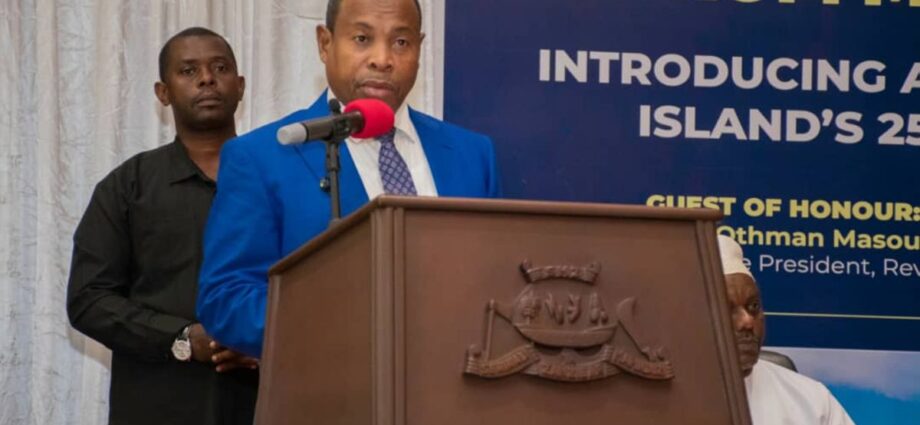
Unguja. The First Vice President of Zanzibar, Othman Masoud Othman, has called attention to the island’s untapped wealth, emphasizing that unlocking these resources could significantly elevate Zanzibar’s economic status and foster growth across the region.
Othman made these remarks on April 5, 2025, during the opening of the “Misali Holy Island as a Sacred Gift for a Living Planet” (Al-mizan) conference, a major initiative aimed at promoting conservation and ecotourism on Zanzibar.
The Al-mizan project is focused on environmental education, advocating for the integration of conservation efforts, the Blue Economy, and ecotourism as essential components of Zanzibar’s broader national development plan.
In his speech, Othman referenced a historic event from 1911, when the British government dispatched Captain Bristol and his crew to map Pemba Island and the Misali Island nature reserve.
He highlighted that the cultural and historical significance of Misali Island is unparalleled across the entire Indian Ocean region, stretching from the Horn of Africa to Cape Town, South Africa.
“Sometimes, we fail to recognize the wealth that lies beneath our own feet,” Othman remarked. “It is essential that we use the wisdom and teachings of the Qur’an to promote environmental conservation, ensuring a sustainable future for the island and its people.”
While acknowledging the challenges in managing the Blue Economy, ecotourism, and environmental conservation, Othman stressed that the Zanzibar government remains committed to collaborating with all stakeholders to create an environment conducive to community development and economic growth.
Zanzibar’s Minister of Tourism and Antiquities, Mudrik Ramadhan Soraga, also spoke at the event, emphasizing the importance of ethical investment in the islands. He pointed out that sustainable development must reflect the island’s cultural and moral values, particularly through community inclusion at all levels.
“The Al-mizan project presents a critical opportunity for Zanzibar’s development,” Soraga said, “but this must be done with full respect for local traditions and in alignment with Islamic principles.”
Sheikh Abdullah Talib Abdullah, Executive Secretary of the Zanzibar Endowment and Trust Property Commission, highlighted the importance of environmental conservation as a means to enhance life and protect the natural beauty of the world.
He also reminded attendees that ecotourism, which honors ethical standards, is a blessing from Allah and a duty underscored by Islamic teachings. However, he warned that neglecting these values has contributed to widespread challenges, including the ongoing crisis of climate change.
“I urge the Government and environmentalists to adhere to these religious principles to protect the flora and fauna of Zanzibar’s islands,” Sheikh Abdullah said.
Mark Bryant from the International Islamic Environmental Education and Conservation Science Program (IFEES) also gave a presentation about the Al-mizan project, emphasizing the need for Zanzibar to safeguard its natural heritage through responsible investments that honor cultural and ethical values.
He stressed that such efforts would create a sustainable foundation for long-term economic prosperity that benefits both current and future generations.













